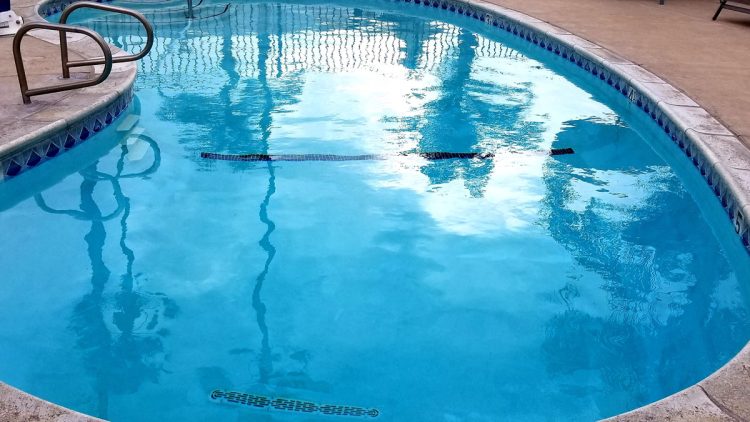Pool Light Replacement Costs 2024
The cost to replace a pool light can vary depending on several factors, including the type of light fixture, the installation method, and whether additional repairs or upgrades are needed. Here’s a breakdown of potential costs associated with pool light replacement:
-
Type of Light Fixture:
- Incandescent: Traditional incandescent pool lights are often the least expensive option upfront but may have higher operating costs due to their energy consumption. The cost of replacing an incandescent pool light bulb typically ranges from $100 to $300, including the cost of the bulb and labor for installation.
- LED: LED pool lights are more energy-efficient and durable than incandescent lights, but they may have a higher upfront cost. The cost of replacing an LED pool light fixture can range from $200 to $600 or more, depending on factors such as the brand, quality, and features of the light fixture.
-
Installation Method:
- DIY Installation: If you’re comfortable with electrical work and have experience working with pool equipment, you may choose to replace the pool light yourself to save on labor costs. DIY installation can reduce the overall cost of the project but requires careful attention to safety and proper installation techniques.
- Professional Installation: Hiring a professional electrician or pool technician to replace the pool light is recommended for safety and peace of mind. Professional installation costs typically range from $100 to $300 or more, depending on factors such as the complexity of the installation and local labor rates.
-
Additional Costs:
- Repairs or Upgrades: If there are any issues with the pool light housing, wiring, or electrical connections, additional repairs or upgrades may be necessary. The cost of repairs or upgrades will depend on the extent of the damage and the materials required.
- Accessories: Depending on the type of pool light fixture and your preferences, you may need to purchase additional accessories such as a new gasket, mounting screws, or a replacement lens cover. These accessories can add a few dollars to the overall cost of the project.
-
Operating Costs:
- Energy Efficiency: LED pool lights are more energy-efficient than incandescent lights and can help reduce your pool’s energy consumption and operating costs over time. While LED pool lights may have a higher upfront cost, they typically have a longer lifespan and lower energy usage, resulting in long-term savings.
Cost Estimates:
- Average Range: On average, homeowners can expect to pay between $200 and $600 or more to replace a pool light, including the cost of the light fixture and installation. DIY installation may reduce labor costs, but hiring a professional is recommended for safety and proper installation.
- Total Project Cost: For a typical pool light replacement project, total costs can range from $200 to $900 or more, depending on the specific requirements of the project and the type of light fixture chosen.
When planning a pool light replacement project, it’s essential to consider factors such as the type of light fixture, installation method, and any additional repairs or upgrades needed. Working with a qualified electrician or pool technician can help ensure that the replacement is done safely and correctly, providing reliable lighting for your pool area.
Are Pool Lights Safe?
Pool lights are generally safe when installed and maintained properly. However, there are some safety considerations to keep in mind:
-
Electrical Safety: Pool lights operate on electricity, so it’s essential to ensure that they are installed by a qualified electrician and comply with local electrical codes and regulations. Improper installation or faulty wiring can pose a risk of electric shock or fire.
-
Waterproofing: Pool lights are designed to be waterproof and sealed to prevent water from entering the electrical components. Proper waterproofing is essential to prevent electrical hazards and ensure the safety of swimmers.
-
Regular Maintenance: Regular maintenance and inspection of pool lights are necessary to ensure their continued safe operation. This includes checking for signs of damage or corrosion, replacing worn gaskets or seals, and ensuring that the electrical connections are secure.
-
GFCI Protection: Ground Fault Circuit Interrupter (GFCI) protection is essential for pool lights and other electrical equipment installed near water. GFCI outlets or circuit breakers help protect against electric shock by quickly shutting off power if a ground fault is detected.
-
Supervision: As with any pool equipment, it’s essential to supervise children and inexperienced swimmers around pool lights to prevent accidents. Educate family members and guests about the potential dangers of pool lights and other electrical equipment.
-
Proper Use: Avoid using damaged or malfunctioning pool lights, and follow manufacturer instructions for operation and maintenance. If you notice any signs of trouble, such as flickering lights or unusual sounds, discontinue use and have the lights inspected by a professional.
By following these safety guidelines and ensuring that pool lights are installed and maintained properly, you can help minimize the risks associated with pool lighting and enjoy a safer swimming environment for yourself and your family.
Pool Light Replacement In Gilbert, AZ
Pool Service Gilbert is a family-owned and operated business that has been serving the valley since 2004. We offer reliable and affordable pool services, including repairs, replacement, equipment installations and more! Our service area includes Ahwatukee, Chandler, Gilbert, Mesa, Phoenix and Tempe, Arizona. Contact us right here for your upcoming pool service needs! Call us at 480-748-3022 for more information.

